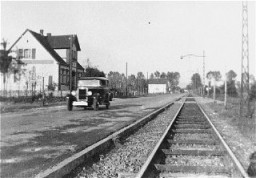You searched for: sp新全讯线上娱乐【Aurl:www.8233066.com】送888元.text
<< Previous | Displaying results 51-60 of 73 for "sp新全讯线上娱乐【Aurl:www.8233066.com】送888元.text" | Next >>
-
Gitla Zoberman
ID CardGitla was the second-youngest of four girls born to observant Jewish parents. They made their home in Sandomierz, a predominantly Catholic town on the Vistula River. Her father owned a small bookstore across from the town hall, selling school texts and novels. Gitla attended public school before enrolling in a Catholic girls' high school. In the winter, Gitla enjoyed skating on the Vistula. 1933-39: In 1937 Gitla moved to Katowice, a large town on the Polish-German border. There, she enrolled in a…
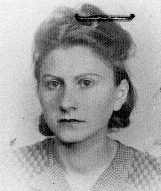
-
David J. Selznik
ID CardThe village in Lithuania where David grew up was located near the Latvian border. His father was a peddler. At age 6, David was sent to Ukmerge, a town known to Jews by its Russian name, Vilkomir, to study traditional Jewish texts at the rabbinical academy there. Six years later, David was called to return home to head the Selznik family because his father had died. 1933-39: David lost his job in 1933, so he left Lithuania and went to the United States and then Portugal. But in 1936 the Baltic states were…
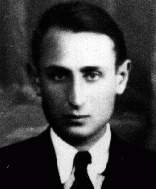
-
Ethel Stern
ID CardEthel was born to a Jewish family living in Warsaw. When she was 9, her family moved to the town of Mogielnica, about 40 miles southwest of Warsaw. Ethel's father spent much of his time studying religious texts. His wife managed the family liquor store. Ethel attended public school during the day and was tutored in religious studies in the evening. 1933-39: Ethel had always wanted to be a teacher. At age 14, after attending religious school in Lodz, she began to teach in the town of Kalisz, where her…
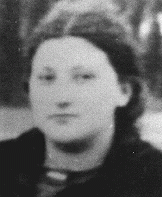
-
Ben Stern
ID CardBen was born to Jewish parents in Warsaw. When Ben was 7, his family moved to Mogielnica, about 40 miles from Warsaw. Ben's father spent much of his time studying religious texts. His wife managed the family liquor store. Ben attended public school during the day and was tutored in religious studies in the evening. 1933-39: After attending school in Warsaw, Ben returned home to help in the family's liquor store. One day, there was a mass demonstration in town. People chanted, "Don't buy from the Jews!"…
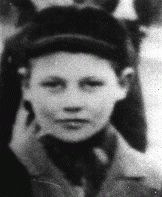
-
Frederik Polak
ID CardFrederik was raised in a religious Jewish home. His father was a scribe of Jewish holy texts. Frederik studied accounting and became a certified public accountant. After his father died, he helped support his three sisters, his blind brother and his mother. When he was in his mid-20's, Frederik married and started his own family. 1933-39: Creating an atmosphere of Jewish observance in the home was important to Frederik and his wife. They loved to celebrate the Sabbath and the Jewish holidays with their…
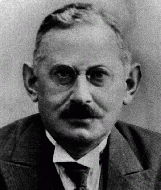
-
Martin Niemöller: "First they came for..."
ArticleLearn about the origins and legacy of Pastor Martin Niemöller's famous postwar words, “First they came for the socialists, and I did not speak out…”
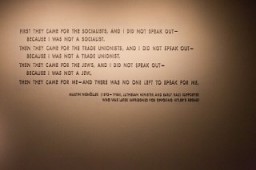
-
Mass Shootings at Babyn Yar (Babi Yar)
ArticleAt Babyn Yar in late September 1941, SS and German police units and their auxiliaries perpetrated one of the largest massacres of World War II.
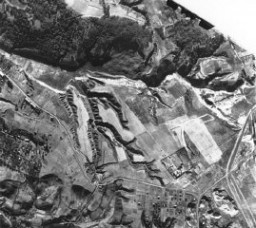
-
Nazi propaganda poster for a special issue of "Der Stuermer" about "race pollution"
PhotoThis image shows a 1935 poster by the antisemitic Der Stürmer (Attacker) newspaper. The poster justifies prohibiting “interracial” relationships between Jews and non-Jews under the Nuremberg Race Laws. Many Germans reported suspicions of the “crime” of interracial relationships to the police. The police needed the public to be their “eyes and ears” in this and other matters. Informers were variously motivated by political beliefs, personal prejudices, the desire to settle petty quarrels, or…
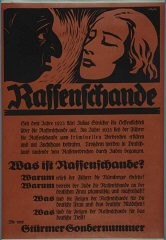
-
Culture in the Third Reich: Disseminating the Nazi Worldview
ArticleIn Nazi Germany, a chief role of culture was to disseminate the Nazi worldview. Arts and cultural organizations were to be synchronized with Nazi ideology and policy.
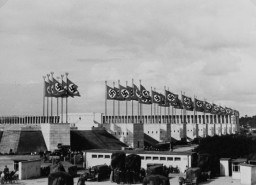
-
Jehovah's Witnesses in Germany: From the 1890s to the 1930s
ArticleThe Nazi regime targeted Jehovah’s Witnesses for persecution. Learn about the history of Jehovah’s Witnesses in Germany before and after the Nazi rise to power.
